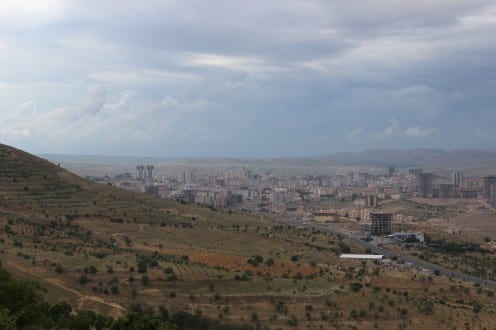The Riots in Brazil seen from a different planet
By Juliano Andrade Spyer, on 18 June 2013
By Daniel Miller and Juliano Andrade Spyer
After Egypt, Turkey, and other parts of the world, it is now time for Brazilians to appear on the front page of international newspapers – here and here. Yesterday, a quarter of a million people participated in political demonstrations across the country. But while I am also in Brazil, my experience is as though I was living on a different planet. Protests are happening 70 kilometres from here, at the state capital, but it might as well be across the ocean somewhere else. The Brazilians at my field site are simply not showing much interest in these events, especially not on Facebook.
It is an interesting inversion, noteworthy because Facebook and Twitter are, again, at the core of these “emergent” political rallies. What made the initial demonstrations (against the raise of bus fares in São Paulo) spread online was that the established news outlets such as radio stations and newspapers tried to ignore them. The feeling of impotence against the powerful – including the ones controlling the news – fueled people to self-organize and share information through social networking sites about the next rallies.
Notice that here, at the place I am conducting field work, Facebook IS the internet. Take Facebook away and there is very little left for people to be online, but it is also very important since a teenager without a Facebook profile is almost an outcast. And yet, the news about the rallies have only just arrived on Facebook in this area after they finally appeared on television. Because television channels could not for long ignore a self-organized demonstration that invades the National Congress. It was only after this happened that a few secondary school and university level students living here wrote something generic on their walls about democracy and the “waking up of the giant”.
I do not think this lack of interest for politics has anything to do with political alienation. On the contrary: it seems that political silence is very political here. Institutionalized politics is seen at its best as a necessary evil one has to accept in order to receive some government advantages, but it is not something that exists beyond the official time for electoral campaigning. This broad and rather abstract thing called “the government” is not something that people discuss. I have not seen, among the people I am friends with on Facebook, any posts mentioning a local politician, not even the mayor.
But, yes, there are social organization happening online and also ideological disputes. A few weeks ago, for instance, the police-made a sketch of a rapist operating in the region which was shared on Facebook and some people took the effort of going to internet cafes to have the image printed out so they could circulate it and show it at their neighborhoods. And I believe there is a serious dispute happening regarding the symbolic ownership of God by Evangelical Christians. I noticed that those commonly attacked by these more radical Christians – such as the gay community or the disciples of African Brazilian religions – make very public comments mentioning God, either thanking God for a blessing, or asking God for help to resolve a certain problem.
There are differences between large urbanized areas where the rallies are happening and small places such as here regarding the use of Facebook. There, Facebook is a channel used for keeping in touch with the people one does not necessarily see every day. Facebook tends to become a gathering place where we are close to everyone, independently of their location in different neighborhoods or other places. The purpose here of using Facebook is not “keeping in touch” because that is really not necessary as friends and everyone else are already physically near to each other every day. What is important, then, is not talking about public things that everyone can know, but to share private information that not everyone knows about. Demonstrations are not interesting for those living here because they relate to institutional politics and also because they are already public, everyone knows about it, and something everyone knows about is not worth talking about.
We, the researchers of this project, still have a long way to go in our ethnographies, so what I am writing now is still an initial impression about how different Facebook is even considering the people living in the same country. But this is a major part of the justification of our project. By comparison the big debates about politics and the internet such as the work of Morosov and those opposed to him, look quite crude. In the same country and at the same time, social media are both central to today’s politics in Brazil and almost irrelevant. It depends on who exactly you are talking about. We need ethnography to undertand how they relate to the different types of politics and the different types of social media. It is not that we are trying to make things more complex, it is rather that we are trying to acknowledge the complexity that we confront.
 Close
Close






